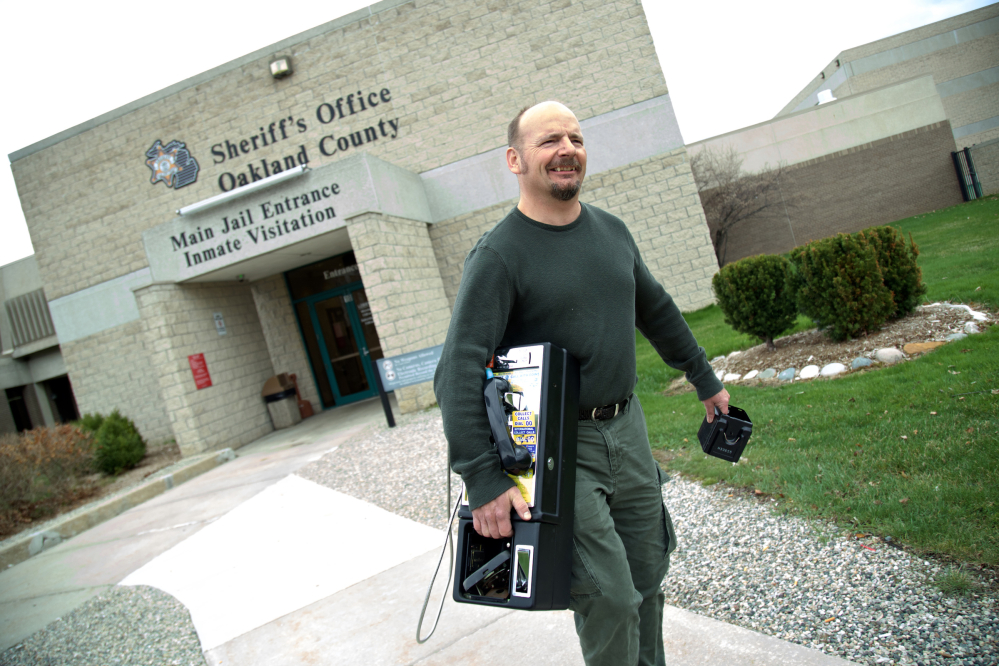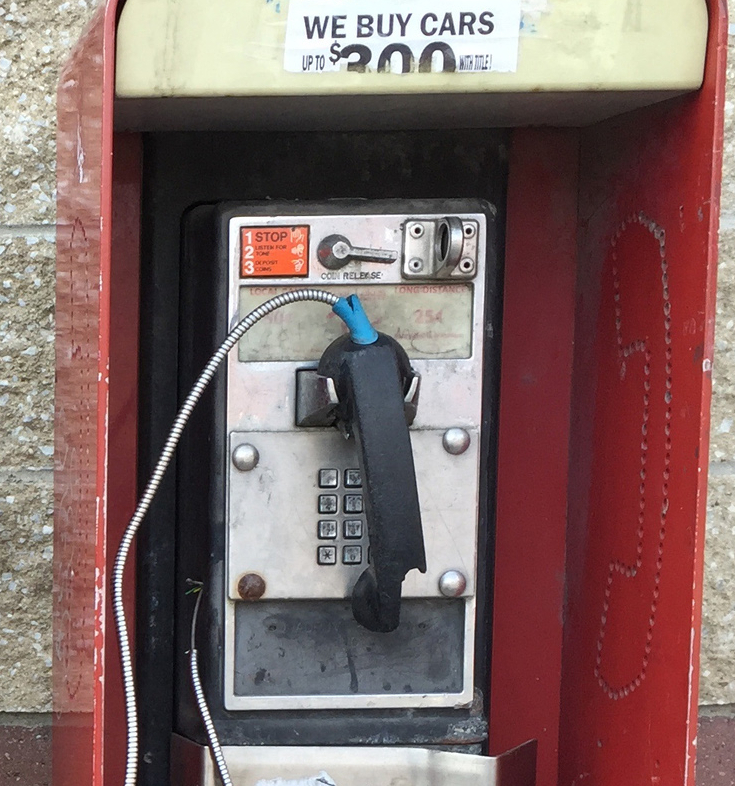DETROIT — A pay telephone on a busy Detroit street corner could once net $200 a week in just coins. But that was 30 years ago.
These days, Greg Andrick is lucky to find $5 or $6 in a pay phone’s change box every couple of months when making his service rounds, the Detroit Free Press reported. His company, Great Lakes Telephone in Ferndale, once operated more than 6,000 rectangular metal pay phones across southeast Michigan. Now it has less than 20, all in Oakland County government buildings and parks.
“It’s really sad. This used to be quite a booming business,” said Andrick, who is also president of the still-existing Michigan Pay Telephone Association. “It shriveled up and went slowly away.”
Like the typewriter and transistor radio, the pay phone is a once-ubiquitous facet of life whose convenience and business model was outmoded by technology.
Detroit once teemed with working pay phones. The common locations were inside bars and outside gas stations, party stores, bus stops and street corners with foot traffic. Across the state of Michigan, there were roughly 60,000 pay phones in the mid-1980s, according to the pay telephone association.
Now there are 1,400 pay phones registered within the state outside of prisons, although it’s unknown how many of them work. There are still 14 listed pay phone carrier companies.
COIN-OPERATED ARTIFACTS
The Free Press recently scouted the city for these coin-operated artifacts. The search turned up dozens of battered pay phones in various states of decay. Only a handful of them still produced a dial tone.
Some phones were rusty and missing mouthpieces, earpieces or both. A few had lost their entire handset and had naked wires sticking out. One phone in the old Cass Corridor was thoroughly mutilated after someone snatched its change box and ripped out the dial pad and cradle hook.
Working phones were found inside, such as at the Greyhound bus station on 1001 Howard St., the 36th District Court building near Greektown and at MotorCity Casino Hotel. The Detroit Metro Airport reports having about 200 working pay phones, which generated $15,476 in commissions last year for the airport.
Scott Hunter, 21, of Jackson, was spotted this month in the act of making a pay phone call in the Greyhound station. His cellphone had lost its charge and he needed to call his grandmother in Daytona Beach, Florida, with news that his bus would arrive late, he said.
Not accustomed to pay phones, Hunter said he lost 50 cents putting quarters in before first picking up the receiver.
“I was trying to remember how to work it,” he said.
Hunter’s second attempt was more successful, and he paid 75 cents for a roughly 1-minute call to Florida.
THEY ONCE PAID COMMISSIONS
Andrick, the Michigan Pay Telephone Association president, said that in its heyday, pay phone operators typically paid commissions to the owner of a location where one of its pay phones was installed. This arrangement made sense for the pay phone operators because they got a percentage of the revenue from each call.
Pay phones were regulated by the Michigan Public Service Commission, which had recently approved an increase from 20 to 25 cents in Michigan Bell’s charge for local pay phone calls.
The Detroit area’s pay phone business was beginning to enter a terminal decline by the late 1990s, Andrick said.
His company stopped offering its commissions to phone location owners once the phones slipped below revenue thresholds. Eventually, the company started charging for its phones to recoup the maintenance and service costs. The current rate for a pay phone is $60 per month.
“It got to, OK, if you really want this pay phone here, you’re going to have to pay me to keep it here,” Andrick said.
Pay phone industry officials have also attributed the fast demise of pay phones in urban areas to the Federal Communications Commission’s Lifeline program, sometimes called the “Obama phone” program, which offers free cellphones to low-income people.
Send questions/comments to the editors.




Success. Please wait for the page to reload. If the page does not reload within 5 seconds, please refresh the page.
Enter your email and password to access comments.
Hi, to comment on stories you must . This profile is in addition to your subscription and website login.
Already have a commenting profile? .
Invalid username/password.
Please check your email to confirm and complete your registration.
Only subscribers are eligible to post comments. Please subscribe or login first for digital access. Here’s why.
Use the form below to reset your password. When you've submitted your account email, we will send an email with a reset code.